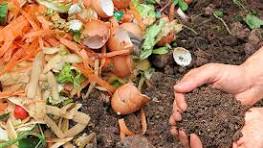When it comes to gardening, the right soil mix can make all the difference in ensuring healthy plants and abundant growth. One of the most popular choices among gardeners today is multi-purpose compost. Whether you’re growing flowers, vegetables, or simply improving the overall soil quality, this versatile compost offers numerous benefits. Fif Fit Garden is an example of how gardeners can use multi-purpose compost to nurture plants, enrich soil, and reduce waste by recycling organic matter into nutrient-rich soil amendments. In this article, we will explore the advantages of using multi-purpose compost, its composition, and how it supports plant growth in various gardening scenarios.
Benefits of Multi-Purpose Compost
Multi-purpose compost is a go-to option for gardeners because of its broad range of uses. It is suitable for many applications, from planting seeds and growing vegetables to filling containers and nurturing flowering plants. One of its primary benefits is its ability to support plant growth by providing essential nutrients. Unlike specialized composts, which are designed for specific plants or soil types, multi-purpose compost contains a balanced mix of organic matter, making it ideal for different gardening needs.
Moreover, multi-purpose compost improves the structure of garden soil, aiding in moisture retention and better drainage. This means your plants are less likely to suffer from drought stress or waterlogging, both of which can hinder growth. Furthermore, this compost helps in breaking down heavy soils like clay, creating a looser structure that allows roots to penetrate more easily. Conversely, it also adds body to sandy soils, helping them retain water and nutrients for longer periods.
Composition and Nutritional Value
Multi-purpose compost typically consists of a blend of organic materials, such as composted bark, green waste, and sometimes peat alternatives. While different brands and manufacturers may tweak their compost formula, the goal remains the same: to create a rich, balanced growing medium for a wide range of plants. These ingredients break down over time, releasing nutrients like nitrogen, phosphorus, and potassium, which are vital for healthy plant growth.
In addition to these macronutrients, multi-purpose compost contains trace elements that plants need in smaller quantities, such as magnesium, calcium, and iron. This nutritional content makes it ideal for supporting young plants, providing them with a steady supply of essential nutrients during the critical growth phases. Some multi-purpose composts may also include slow-release fertilizers or other additives to further boost their effectiveness.
Enhancing Seed Germination and Young Plant Development
One of the key applications of multi-purpose compost is seed germination. Starting plants from seed can be challenging, but using the right compost can significantly improve your success rate. Multi-purpose compost offers a fine, crumbly texture that provides excellent conditions for seed development. It retains enough moisture to keep seeds hydrated without becoming waterlogged, which is crucial for preventing fungal diseases like damping-off that can affect seedlings.
As seedlings grow, they rely on the compost to provide essential nutrients and support root development. Multi-purpose compost offers a stable, nutrient-rich environment that encourages strong root growth, which is critical for the overall health and resilience of young plants. Whether you’re growing vegetables, herbs, or flowers, this compost helps establish a strong foundation, ensuring that your plants get off to the best possible start.
Container Gardening and Potted Plants
For those who prefer container gardening or have limited outdoor space, multi-purpose compost is an excellent choice. It works well in pots and containers, providing the right balance of nutrients and moisture retention for a variety of plants. Whether you’re growing ornamental plants on your balcony or vegetables in raised beds, this compost helps ensure that your plants have access to the necessary nutrients.
Because container plants are more reliant on the growing medium for their nutrition than plants rooted in garden soil, it’s important to choose a compost that delivers consistent results. Multi-purpose compost meets this requirement, offering a reliable growing environment that supports sustained growth. Additionally, it helps maintain the right moisture balance in containers, ensuring plants don’t dry out too quickly or become waterlogged. This is especially useful for container gardeners who may not always have time to water their plants regularly.
Improving Soil Quality in the Garden
In addition to its use in containers, multi-purpose compost is highly effective at improving garden soil quality. Whether your soil is too heavy or too light, multi-purpose compost can help amend its structure, making it more suitable for a variety of plants. For instance, if you have clay-heavy soil, the compost helps break down the dense particles, improving drainage and allowing roots to grow more freely. On the other hand, if your soil is sandy, multi-purpose compost adds body, helping it retain moisture and nutrients.
By improving the overall structure of your garden soil, multi-purpose compost helps create a more hospitable environment for plant roots. This leads to healthier, more robust plants that are better able to resist disease and withstand environmental stresses such as drought or extreme temperatures. Over time, regular application of multi-purpose compost can significantly improve the fertility and health of your soil, leading to better garden yields and more vibrant plant growth.
Conclusion
Multi-purpose compost is a highly versatile and valuable tool for any gardener. Whether you’re growing flowers, vegetables, or houseplants, this all-in-one compost provides the necessary nutrients, moisture, and structural benefits to support healthy plant growth. Its balanced composition makes it suitable for a wide range of gardening applications, from seed germination and container gardening to soil improvement in traditional garden beds.
By incorporating multi-purpose compost into your gardening routine, you can enhance plant health, improve soil structure, and ultimately enjoy a more successful and rewarding gardening experience. As more gardeners recognize the value of this versatile product, it continues to grow in popularity, offering an effective and sustainable way to nurture plants and enrich soil across different gardening environments.
